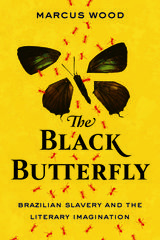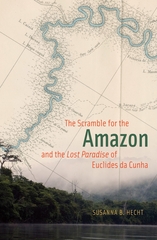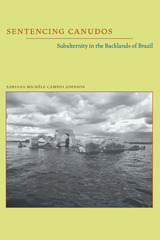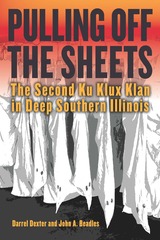
The Black Butterfly focuses on the slavery writings of three of Brazil’s literary giants—Machado de Assis, Castro Alves, and Euclides da Cunha. These authors wrote in the late nineteenth and early twentieth centuries, as Brazil moved into and then through the 1888 abolition of slavery. Assis was Brazil’s most experimental novelist; Alves was a Romantic poet with passionate liberationist politics, popularly known as “the poet of the slaves”; and da Cunha is known for the masterpiece Os Sertões (The Backlands), a work of genius that remains strangely neglected in the scholarship of transatlantic slavery.
Wood finds that all three writers responded to the memory of slavery in ways that departed from their counterparts in Europe and North America, where emancipation has typically been depicted as a moment of closure. He ends by setting up a wider literary context for his core authors by introducing a comparative study of their great literary abolitionist predecessors Luís Gonzaga Pinto da Gama and Joaquim Nabuco. The Black Butterfly is a revolutionary text that insists Brazilian culture has always refused a clean break between slavery and its aftermath. Brazilian slavery thus emerges as a living legacy subject to continual renegotiation and reinvention.


In the late nineteenth century, the Brazilian army staged several campaigns against the settlement of Canudos in northeastern Brazil. The colony’s residents, primarily disenfranchised former slaves, mestizos, landless farmers, and uprooted Indians, followed a man known as Antonio Conselheiro (“The Counselor”), who promoted a communal existence, free of taxes and oppression. To the fledgling republic of Brazil, the settlement represented a threat to their system of government, which had only recently been freed from monarchy. Estimates of the death toll at Canudos range from fifteen thousand to thirty thousand.
Sentencing Canudos offers an original perspective on the hegemonic intellectual discourse surrounding this monumental event in Brazilian history. In her study, Adriana Michele Campos Johnson offers a close examination of nation building and the silencing of “other” voices through the reinvisioning of history. Looking primarily to Euclides da Cunha’s Os Sertões, which has become the defining—and nearly exclusive—account of the conflict, she maintains that the events and people of Canudos have been “sentenced” to history by this work. Johnson investigates other accounts of Canudos such as local oral histories, letters, newspaper articles, and the writings of Cunha’s contemporaries, Afonso Arinos and Manoel Benício, in order to strip away political agendas. She also seeks to place the inhabitants and events of Canudos within the realm of “everydayness” by recalling aspects of daily life that have been left out of official histories.
Johnson analyzes the role of intellectuals in the process of culture and state formation and the ensuing sublimation of subaltern histories and populations. She echoes recent scholarship that posits subalternity as the product of discourse that must be disputed in order to recover cultural identities and offers a view of Canudos and postcolonial Latin America as a place to think from, not about.
READERS
Browse our collection.
PUBLISHERS
See BiblioVault's publisher services.
STUDENT SERVICES
Files for college accessibility offices.
UChicago Accessibility Resources
home | accessibility | search | about | contact us
BiblioVault ® 2001 - 2024
The University of Chicago Press









